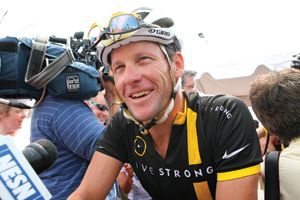Are ethics, morals and personal character more important in today’s business environment?
While scandals may be interesting from a tabloid perspective, leagues, teams and management understand these issues have a negative impact on brand reputation and hurt current and future sponsor relationships. When drafting and trading for players, personal character is often mentioned as a critical factor; off-field and off-court distractions hurt not only performance but also team perception.
The greater the fiscal investment, the more important intangibles become, as there is increased accountability, scrutiny and more to lose. Ethics, morals and personal character go beyond investment, however, and can never be overlooked, given the considerable efforts made by teams and sponsors to grow reputation. One wrong decision can wipe out positive brand associations built over years.
The shift in ethics perception is also seen in business. Since 1994, the Ethics Resource Center has fielded a National Business Ethics Survey of Fortune 500 companies, and the 2012 report identified several trends — one of which is that ethical workplace conduct tends to move with the economy. When the economy is down, workers and companies become more scrupulous. A 2011 Aspen Institute survey of business schools revealed that 79 percent of the schools required a course in ethics or a related topic versus only 34 percent in 2001.
How does this affect brands and their sponsorship deals?
 |
The sponsor reaction to Lance Armstrong’s admission of doping was swift and widespread.
Photo by: GETTY IMAGES
|
Companies look to borrow brand equity from properties and emotionally connect with their avid, far-reaching fan bases. Sharing a common passion point is the valuable commodity that makes sponsorship so appealing. When vetting these types of partnerships, significant value is put on the opportunity to engage fans in a meaningful manner.
Icons such as Tiger Woods, Kobe Bryant and Lance Armstrong, once considered can’t-miss athletes, were surrounded by scandals that wouldn’t go away. Collateral damage put associated companies in a “must-react” situation to define their future endorsement plans. By conceding guilt to Oprah Winfrey and stepping down from Livestrong, Armstrong moves into the embryonic phase of brand rehabilitation; with the ultimate goal of competing again and mitigating further damage. Although we live in a forgiving society, the damage is done and the road to redemption will be difficult and long. In a matter of days since news leaked of his interview, the Livestrong name came off of Sporting KC’s stadium and the IOC stripped Armstrong of his Olympic medal. Additional impact is forthcoming; this is just the beginning.
It’s no coincidence morals stipulations have intensified in personal services agreements. But tougher clauses may be forthcoming.
Sponsors have a right to be concerned about the highly visible scandals in New Orleans and Happy Valley. These involved multiple individuals, and the black eye extended far beyond individuals. Should sponsors of teams have the same rights as companies that have added morals clauses to their endorsement agreements? Could the timing of these teamwide scandals be the tipping point needed to better integrate morals stipulators into team agreements?
Even with strong morals stipulations, terminating any relationship is not black and white. It’s important to know the differences between allegations and facts, as well as the depth and breadth of the scandal.
If the scandal is an isolated incident and contained to a small number of individuals, swift actions can be taken to stop negative perception from touching corporate sponsors. When the wrongdoing is more widespread, broader actions can be considered.
When to say when
A few examples of when a sponsor should back out:
■ Public perception of the organization is extremely negative, and it will take longer to repair than the term of the deal.
■ Inability to leverage trademarks to motivate target audience to buy your products or services.
■ Sharp drop in demand for and/or perceived value of tickets (especially critical for sponsorships focused on business-to-business opportunities).
■ Recent history and trends of scandals coming from the organization.
■ Strong negative perception of coaches, players, executives when appearances and meet-and-greets are a big piece of a relationship.
Is the sponsorship a brand-building platform centered around signage, rights to marks/logos, etc., or a revenue-generating deal that could include licensed products, on-site sales, etc.? For example, at Penn State, State Farm pulled ad support from home football games while Pepsi continues as a campus beverage provider. If significant revenue is generated from a relationship, changes to deal points, if any, may be less dramatic.
With a relationship on the ropes, another important consideration is who will be affected by throwing in the towel. Team members, executives, schools, even entire cities can be affected by the ups and downs of a team. Understanding this impact should be considered, as backing out could cause further harm, creating backlash for a sponsor.
If the relationship is maintained, monitoring the value of assets to ensure they meet expectations is critical. If the relationship no longer makes sense from a branding perspective and/or the deal will no longer deliver its original value, it’s vital to disengage gracefully and with reason — reputation and future deals depend on it.
It is important to protect brand reputation, but still make a solid commitment to the rights holder. Negotiate the right mix of assets so that if a scandal surfaces, there are a variety of activations to generate value. If morals clauses become more widely used, it’s not necessarily recommended to terminate a relationship the moment a scandal hits. Instead, sponsors should pause, do their due diligence and discuss the original objectives of the sponsorship with key stakeholders. Then determine the next steps.
A good morals clause should allow for asset reallocation to provide the value and positive brand impact. For example, move benefits away from business-to-consumer components, such as TV-visible signage, and on to business-to-business components, such as tickets and hospitality. This way the relationship can continue to generate visibility and value, while still protecting the sponsor’s brand reputation.
Sam Mogilner (smogilner@scoutsande.com) is director of sports, entertainment and events for Scout Sports and Entertainment.





